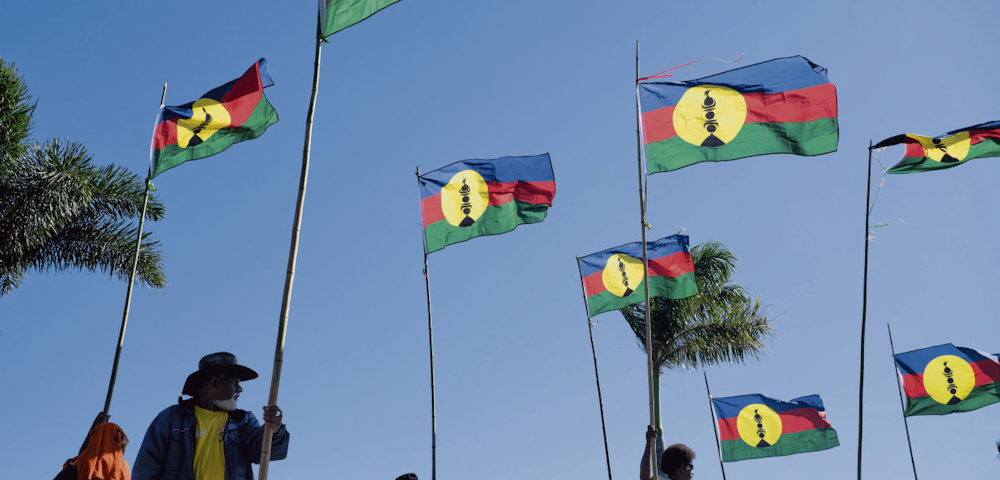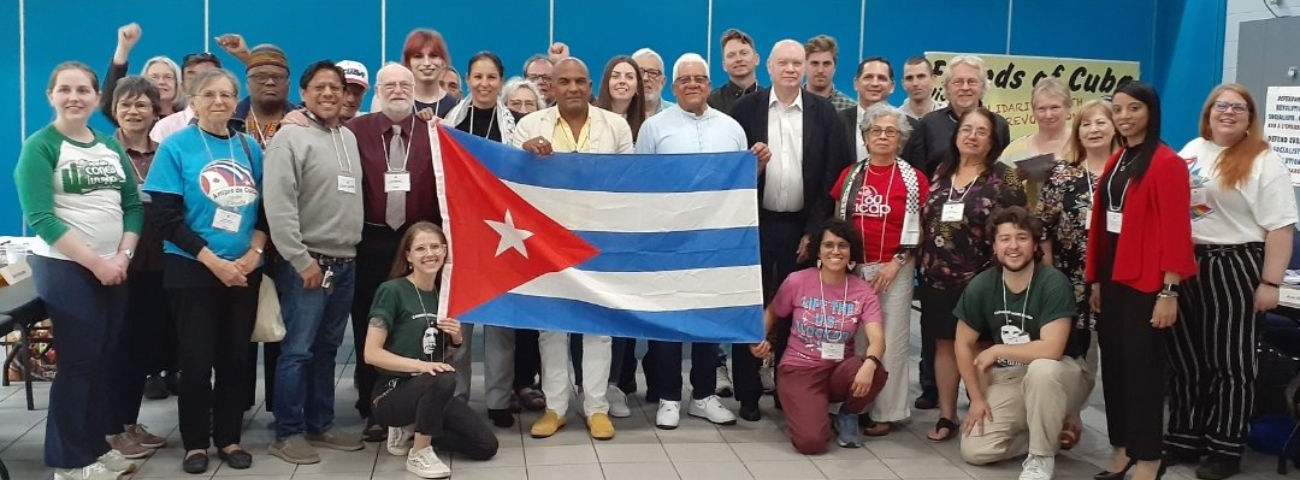By B A Ford
On Sunday 4th October, Kanaky (New Caledonia) held a second referendum to decide on its independence from France. 180,000 people voted on the question with an 80 percent turnout and a 56.67 percent majority voting to reject independence, according to SBS News.
The outcome to remain a part of France is disappointing for the Indigenous people of the island, the Kanak people who lead the Kanak and Socialist National Liberation Front (Front de Libération Nationale Kanak et Socialiste, FLNKS).
Background
Kanaky has been subject to European imperialism and colonialism since James Cook “discovered” the island in 1774. From 1853 onwards, it has been the French settler-colony known as New Caledonia and is comprised of white French settlers and Indigenous Melanesian people. The Indigenous people of Kanaky were one of the persecuted groups by Australian and British imperialists for the “blackbirding” slavery practice that brought Melanesian people to North Queensland for sugarcane production.
The Guardian [paper of the Communist Party of Australia] has covered for years the continued exploitation of Kanak people by the white and European imperialists. This includes the 1980s armed conflict between the Kanak liberation movement and the white settlers, Australia’s exploitative Temporary Business (long stay) 457 visa, the opening of the Goro nickel mine that has twenty-five percent of the world’s nickel reserves, and the criminalization of Kanaky’s pro-independence unionists.
In the words of a call to action by Collectif Solidarité Kanaky published in the Guardian issue #1424 in 2006: “Those in power are trying to muzzle the territory’s foremost organization for defending the rights of all workers, whether they be Kanak (the Indigenous people of Kanaky) or of other origins. In this far-away colony where there are no industrial tribunals, employees are often forced to lead long conflicts to assert their rights, faced with arrogant bosses who mock their dignity.”
In 1998 the Nouméa Accord was signed between the French Republic, the conservative pro-France party called the Rally, and the pro-independent FLNKS with the promise to extend more rights to Kanak people and to hold an independence referendum by 2018. If the results were to remain a part of France, another two referendums were to be held in 2020 and 2022.
The 2020 referendum is a part of this process.
In order to strengthen the opposition to Kanaky’s independence, six anti-independence parties formed an alliance in July this year called the Loyalists. The Loyalists, if the independence referendums are defeated, seek constitutional closer ties with France and the French government.
What now?
One question that faces Kanaky’s future is how, whether independent of France or not, will the island position itself amongst the rising tensions between the US and China in the Asia-Pacific.
Kanaky, as a French settler-colony, is one of France’s footholds in the Asia-Pacific. The past ten or so years of various powers militarizing the region has now exploded into the arena of the new Cold War.
It is clear France is not exempt from trying to secure its interests in the region. This is shown by the recent trilateral meetings between France, Australia and India that were first held last month in September to discuss strategy in the Indo-Pacific. France has named the region as “a priority for French diplomacy” for a “stable, law-based, multipolar order.”
Following the defeat of the 2020 referendum on 4th October, Kanaky/New Caledonia will be holding their third referendum in 2022.
The biggest hurdle facing a win through the referendum process is that the Indigenous Kanak people’s democratic voice is drowned out by the French settlers. Kanak people only make up approximately thirty-nine percent of the population.
This is a problem that all Indigenous people face within settler-colonies as their sovereignty and political rights are suppressed by a pro-imperialist majority. Because of this reality, it remains unclear whether independence can be won by restraining the political struggle to participation in the existing system.
[Republished from The Guardian (Australia)]




